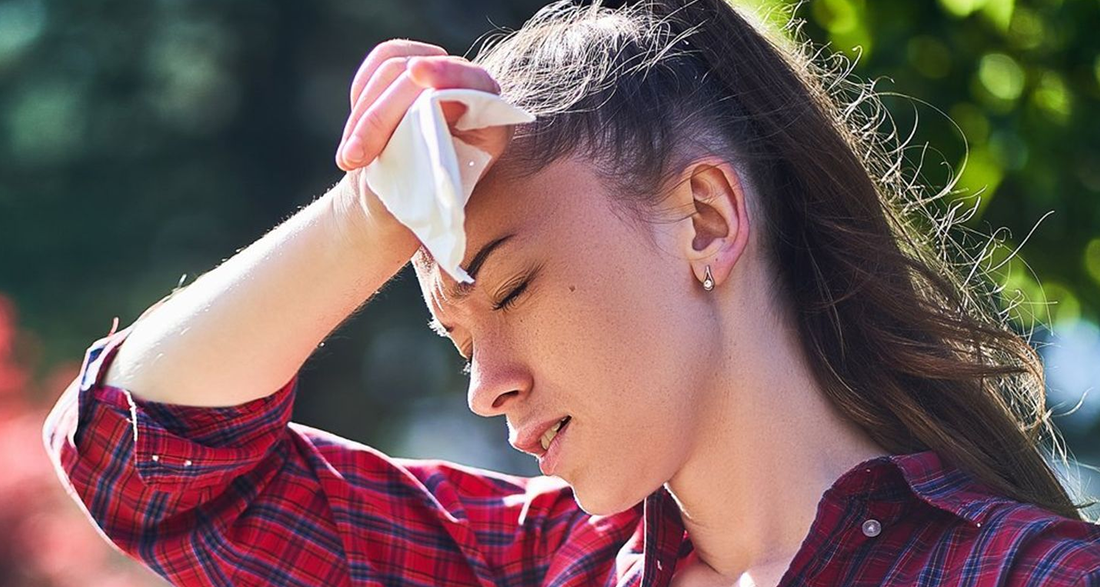Sweating can affect well-being but is also essential for life. But what is still considered normal? Here are the facts at a glance.
Moisture on the skin is a natural and important process of the body for every person. However, for most people, the fun stops when clothing is soaked. Especially in summer, many people can’t stop sweating.
The German Apothekerzeitung also describes this phenomenon as the “body’s own air conditioning”. Only through sweating does the body naturally cool down. This is ensured by up to four million sweat glands all over the body, producing a minimum of 200 milliliters of sweat daily. An adult sweats on average 0.5 to 1.5 liters per day. However, this amount can vary due to factors such as physical activity, ambient temperature, and predisposition.
Do men sweat more than women?
Predispositions also lead to perhaps the biggest sweating myth, such as men sweating more than women. But that’s not true: In 2017, a study published in the journal “Experimental Physiology” by the University of Wollongong debunked this assumption – drop by drop. According to the study, sweat production does not depend on gender but on body size. The Australian research team studied a total of 36 men and 24 women with similar fitness levels and health conditions but very different body sizes.
According to the study, the differences attributed to gender are less than five percent. According to Prof. Nigel A.S. Taylor of the University of Wollongong, the body has two ways to cool down: through sweating or increased blood circulation on the skin surface. The study shows that smaller people tend to choose the second path, while larger people sweat more.
Sweat-inducing anxiety: Too much is too much
In medicine, sweating is also considered in two categories: thermal and emotional sweating. While thermal sweating serves the natural regulation of body temperature, emotional sweating is associated with inner restlessness or stress. In some cases, this can lead to hyperhidrosis.
In the condition known as hyperhidrosis, excessive sweating occurs, even in cool environments, causing strong odor or cracked skin. In individual cases, hyperhidrosis can also lead to mental stress. In these cases, affected individuals should always consult a doctor who can recommend suitable treatment options.
The right scent: Deodorants, antiperspirants, and more
On the other hand, those who sweat normally can manage well with a deodorant or antiperspirant. Sweat itself does not have an unpleasant odor. It’s only when bacteria break down sweat that the typical pungent body odor develops. Deodorants and creams inhibit bacterial growth, while antiperspirants reduce odor and even wetness.
This is because they contain aluminum chloride, which closes the sweat glands. While the European Food Safety Authority has set a limit for weekly aluminum intake, recent studies show that absorbing aluminum through the skin is unlikely, as confirmed by the Federal Institute for Risk Assessment.
Experts generally recommend healthy and gentle body hygiene as well as airy clothing, especially in summer, to minimize odor formation. With a bit of deodorant and perhaps a change of clothes for safety, everything should be fine.

